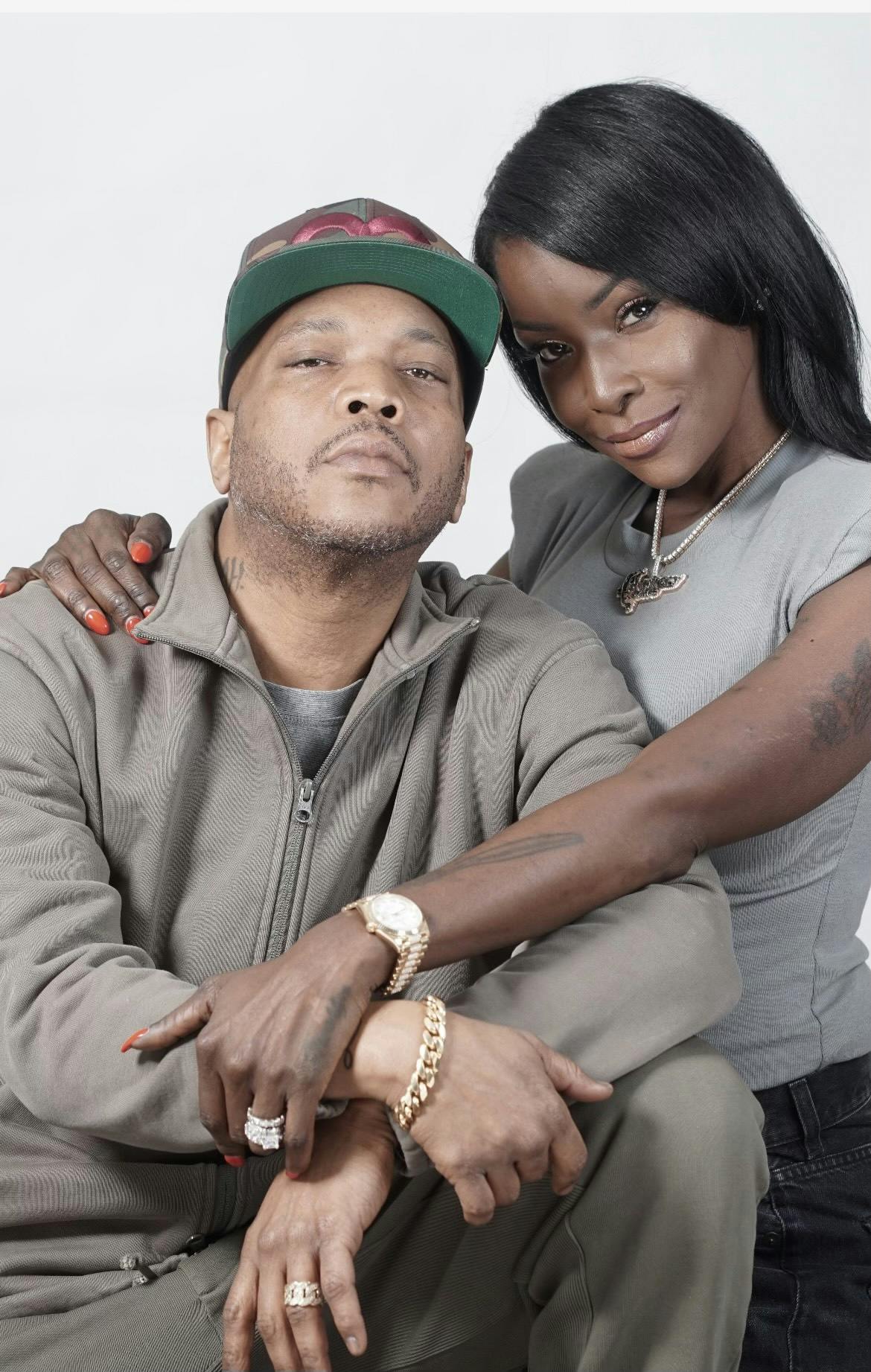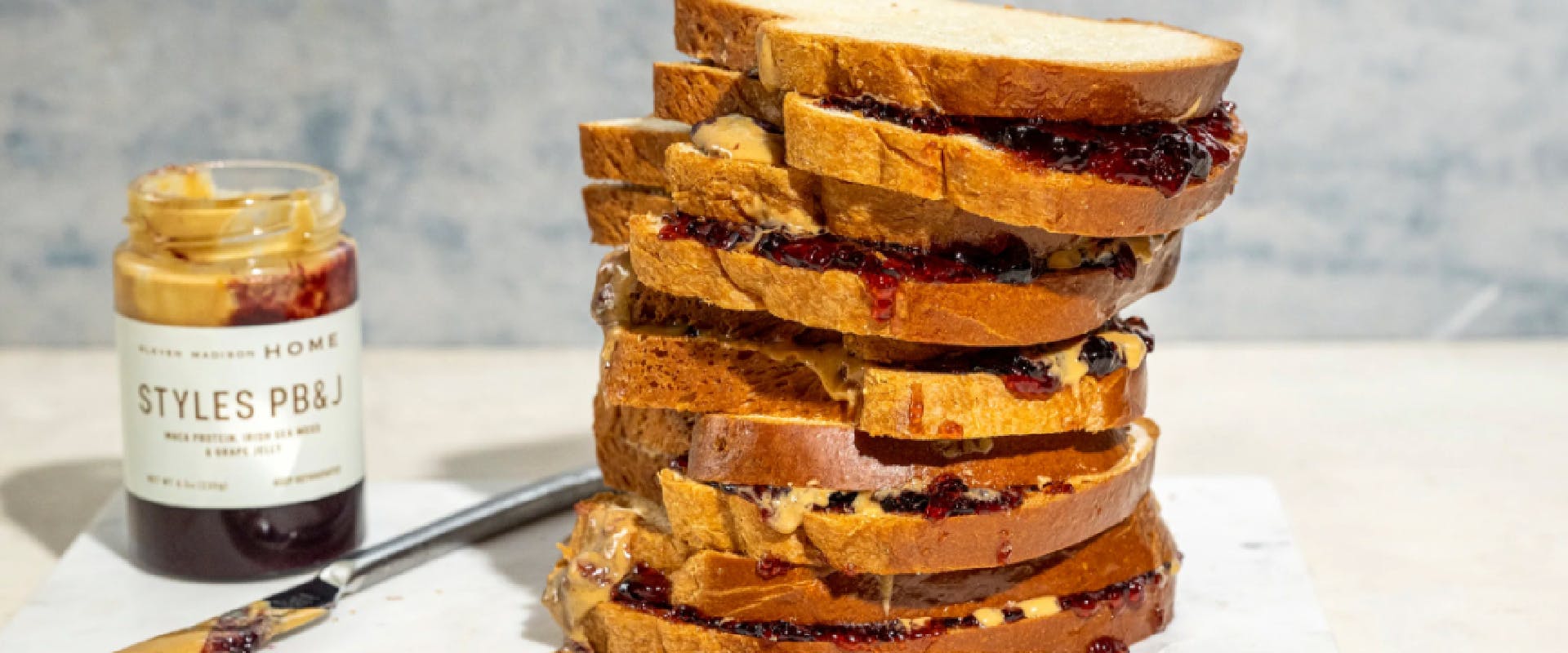
Styles P On Why His High-End PB&J Isn't Just for Rich Folks: 'Health Is for Everybody'
Styles P On Why His High-End PB&J Isn't Just for Rich Folks: 'Health Is for Everybody'
Published Mon, April 24, 2023 at 5:00 PM EDT
Styes P became plant-based completely by mistake.
"I went on a three-week cleanse and just never went back," he says with a small laugh, before listing off a string of health benefits he immediately experienced after adopting a plant-based lifestyle.
"I was I was overweight, I had eczema, I had post nasal drip and sinusitis, I had bad temper and just a host of things," he says. "And from eating plants they just kind of all eased away."
His personal story is a huge part of why he co-found Juices For Life alongside his Lox group mate Jadakiss and radio host Angela Yee more than a decade ago. "It's a beautiful lifestyle to remain balanced," he says.
With that in mind, he's also created Farmacy For Life, Hip-Hop's first natural health food store, which recently opened its first brick-and-mortar location in New York. It's a family-owned and operated business focused on promoting a healthy lifestyle through information and products, and he runs it with his wife Aduja.


"People always think [being plant-based] is just for health reasons," P says. "For me, more than anything, it keeps my spirit intact and I'm just level-headed."
Recently Styles P and Aduja launched a high-end peanut butter and jelly spread, Styles PB&J in partnership with Eleven Madison Park. More than just a spread, the PB&J is enriched with maca protein and Irish sea moss, tapping into the elements that P and his wife believe are so important — good food that's good for you.
We caught up with Styles P and Aduja to talk about their new partnership, flagship store, and why eating healthy is for everybody.
DROP YOUR EMAIL
TO STAY IN THE KNOW
You connected with Eleven Madison Park to create Styles PB & J. How'd that connection come about?
Aduja: It's a helpful staple. We all grew up on PB & J — it was kind of a no-brainer. We went over a couple of other options but we collectively agreed that PB and J would be a great product. And if you've ever tried any of their products or eaten at the restaurant Eleven Madison you know how amazing their things are so I knew they'd be able to execute. We also wanted to provide a product that had dual purposes, that not only tastes good but where we could add some of our products.
Styles P: It tastes good and is good for you. Being at Eleven, a lot of things were in play, one being able to expand on what we do. Also bringing something to the people that's good and good for you. People are willing to buy a lot of things that's high-end except for what's good for the inside of their body. So we wanted to do something that will work for the inside of your body, but that was special. The peanut butter has maca [root] powder in it, sea moss... If you know about Eleven Madison Park, it's the only vegan restaurant with Michelin stars, so we just wanted to combine forces. And also, being from a plant-based perspective, we wanted a product that can actually reach high-end plant-based people, low-end plant-based people, and for low-end, plant-based people to also be able to have a high-end experience. The restaurant, you need a certain amount of money to be able to eat in there but the peanut butter and jelly, you only need $15. It's something you can have in your home, you can take on the road, and really get the best of both worlds. Both companies felt it was a good combination and a good collab to be able to spread the message of just living plant-based and supporting plant-based products from all angles.
People often tend to put plant-based in a box. Like, either it's too high-end, or it's too cultural. Or you know, it's only for Rastas, it's only for rich white people, yadda, yadda, yadda. So we just wanted to get something that could meet in the middle and really be able to voice what we're doing to everyone and kind of spread a message and just bring something new.
What I really liked about the PB&J is it's sort of an easier entry point, for one thing. And then for Black folks there's sort of an aesthetic associated with being vegan, like you're walking around with sage in your back pocket. Can you talk about the accessibility aspect of being plant-based, and why that's important to y'all?
Styles P: The accessibility of plant-based life is very important for us and to break the stigma of people's mind thinking you have to be from a certain background certain race certain color, one because health is for everybody. So it's important for us to break the stigma because we want people to know that health is for everyone especially if you're poor, you're from a poor neighborhood that's not that affluent, you tend to think you know, this lifestyle isn't for me, or I have to have certain knowledge, or hang around certain people, or be in a certain box. If you're from the hood, the number one rule in the hood across, not just America, but probably anywhere is survival. That's what most people think, but they don't tend to think about that when it comes to their diet, which to us is sort of ass backwards. So we're just trying to reverse the knowledge.
Adjua: Which is why we snuck our products in. We always promote that. For us, knowing that it's such a common product, it was an easy way to kind of make you think about it even more and understand that it really does taste good, it can taste good, and it can taste even better with some healthy nutrients in there.
Can you talk more specifically about the health benefits of the products you added to the PB&J?
Adjua: We added minerals, sea moss, maca...
Styles P: Maca is good for your libido, point blank period. The benefits of sea moss are tremendous, it removes mucous and phlegm. It's good for our skin, good for your energy. It's good for your cells.
Adjua: Magnesium, zinc, iodine. And then there's also some agave in here. So, you know, just trying to keep it healthy, but to have it taste amazing as well.


There's a difference between launching a single product and launching an entire store, which is what you did with Farmacy For Life. What prompted you all to do that?
Aduja: The motivation behind the store was, you know, we initially started online, obviously, e-commerce is thriving, so much that we wanted to actually have a storefront where people can actually physically come in, meet us get educated, avoid the shipping. And, you know, give them what they actually need in by any means.
Styles P: The idea also came from my wife. She's smart enough to know we had before we had Farmacy For Life. I'm also co-owner and co-founder of Juices For Life. And as we started seeing more people take to the juices and we open more juice bars, and people adapting to the lifestyle more, we decided, through my wife's intelligence to say, okay, let's invite him to what the things we have in our medicine cabinet. And why not start off a company of our own incorporating the things that we use? Sea moss, flaxseed, oil of oregano, elderberry, all things that we had in our medicine cabinet as we were juicing. And then the idea was just genius. Like, yeah, alright, we have enough people on board juicing and now paying attention. How do we level up and make it smarter, make it broader? And that's how Farmacy For Life was birthed?
Have you noticed an uptick in interest, in the Black community in particular, becoming interested in healthier options and a plant-based lifestyle?
Aduja: We'd like to think that we play a part in that and inspiring people not only to start your own businesses, but you know, just to understand our movement. We have a lot of loyal customers, and they're changing their lives and their children's lives. So we're very grateful for that.
Styles P: The movement is definitely gaining momentum. I would like to say it's definitely been since COVID hit. I felt like people of all colors, interest in health has jumped 50 to 70 percent. We've been in the health field for a long time. The original juice bar has been open almost 13 to 14 years now, so we're not new to the game. But definitely since 2019, especially people from neighborhoods of poverty, they definitely pay more attention and are striving to be healthier. A lot of people own juicers now, a lot of people would juice up, a lot of people are interested in the products. Like we get people coming in the store, either they're knowledgeable or they're willing to be knowledgeable and get the lessons then come back. Almost everyone who comes, comes back. Moreso than that, it's just a blessing to be able to change people's lives and bring something that adds positivity. So every day when you see someone walk through the door, and you know, you're playing a part in helping, and you're a messenger of helping, it just feels really good. And people really are picking up on it.
Because that's what the real purpose of Farmacy For Life and Juices For Life is. Even if you don't get our products, we like to inform people. In Farmacy For Life, there's a resource center. We explain what the products do for you, how they do for you... we keep plaques up, you can scan a plaque, see exactly what you're getting what it does for you how to take it. That's pretty much all of our products. So we're informing people, we're helping, but the main part is that you take the education yourself and use it at home. So we're informing people, we're helping, but the main part is that you take the education yourself and use it at home. Like, you'll come to a juice bar, you get juice every day. But it makes more sense if you also get the juice and you do it at home so your child, your sibling, your significant other is also learning and watching. People learn from more from actually watching you then you telling them what to do.
"For us, as Brown people, we have to make sure that we don't think health is just for tree huggers, granola, Cosby-type people, or rich white people. No, health is for everyone."
I love the level of accessibility you're bringing and making the lifestyle not seem like something bougie or far-fetched.
Styles P: For us, as brown people, especially with all the issues that we just mentioned, we have to make sure that we don't think health is just for tree huggers, granola people, Cosby-type people, rich white people –no health is for everyone, especially if you're poor, you want to invest in preventative measures. And that's what Farmacy For Life and Juices For Life is about. Herbs, oil, fruits and veggies been around a long time before we have. There'll be a long be around a long time after we're gone. Like my wife said, we didn't invent to invent the wheel. But we do believe that we're strong messengers because we're passionate about our people healing and having the information.
Once you've moved from a poor neighborhood to an affluent neighborhood, you can look at the difference between the grocery stores, the supermarkets — school lunches, the school programs. So all of this has a big part to do with how you're treating your body in the first place. We totally understand we won't be around for the end results to see what we want to see. It probably won't happen within our lifetime, but we started it. We getting it going. Our son is here working the store, we're passing the torch. And that's what it's about because on every corner, in the hood at least there's a few fast food restaurants, a liquor store, and this is every few blocks. So until we have something healthy, not just us, I'm talking about us as a people, until there are many companies like Farmacy For Life, Juices For Life in every neighborhood, the job is not done.




